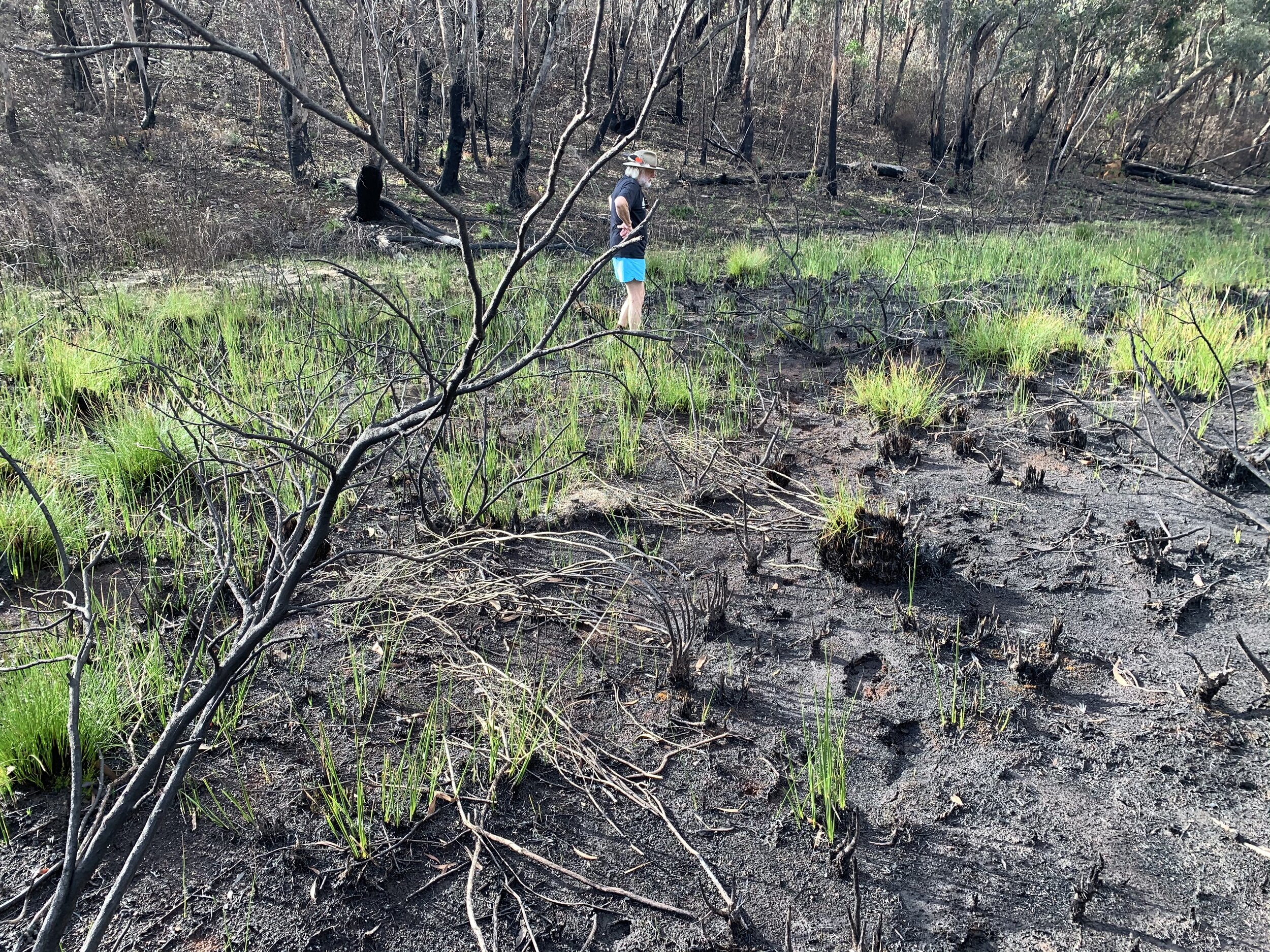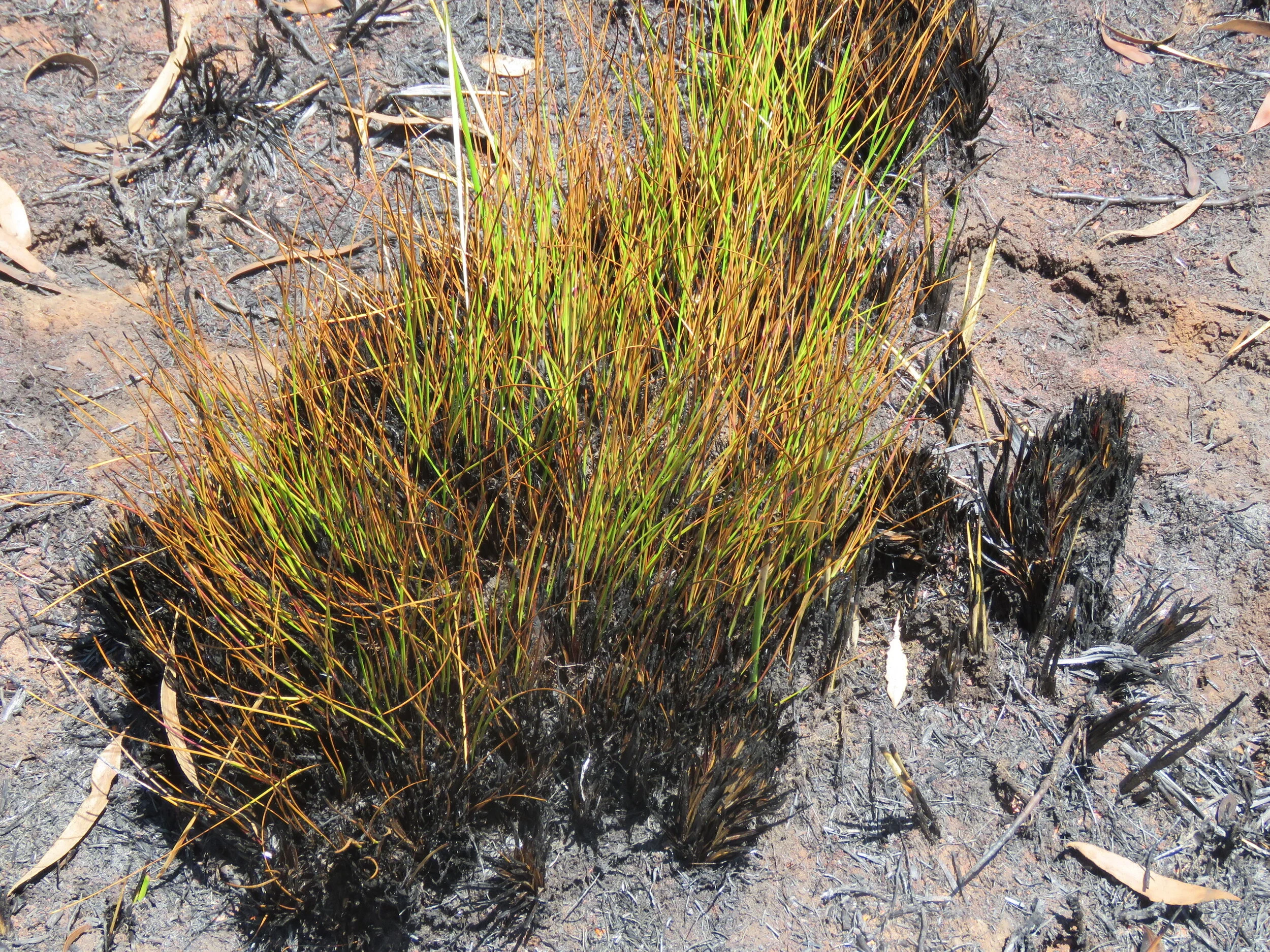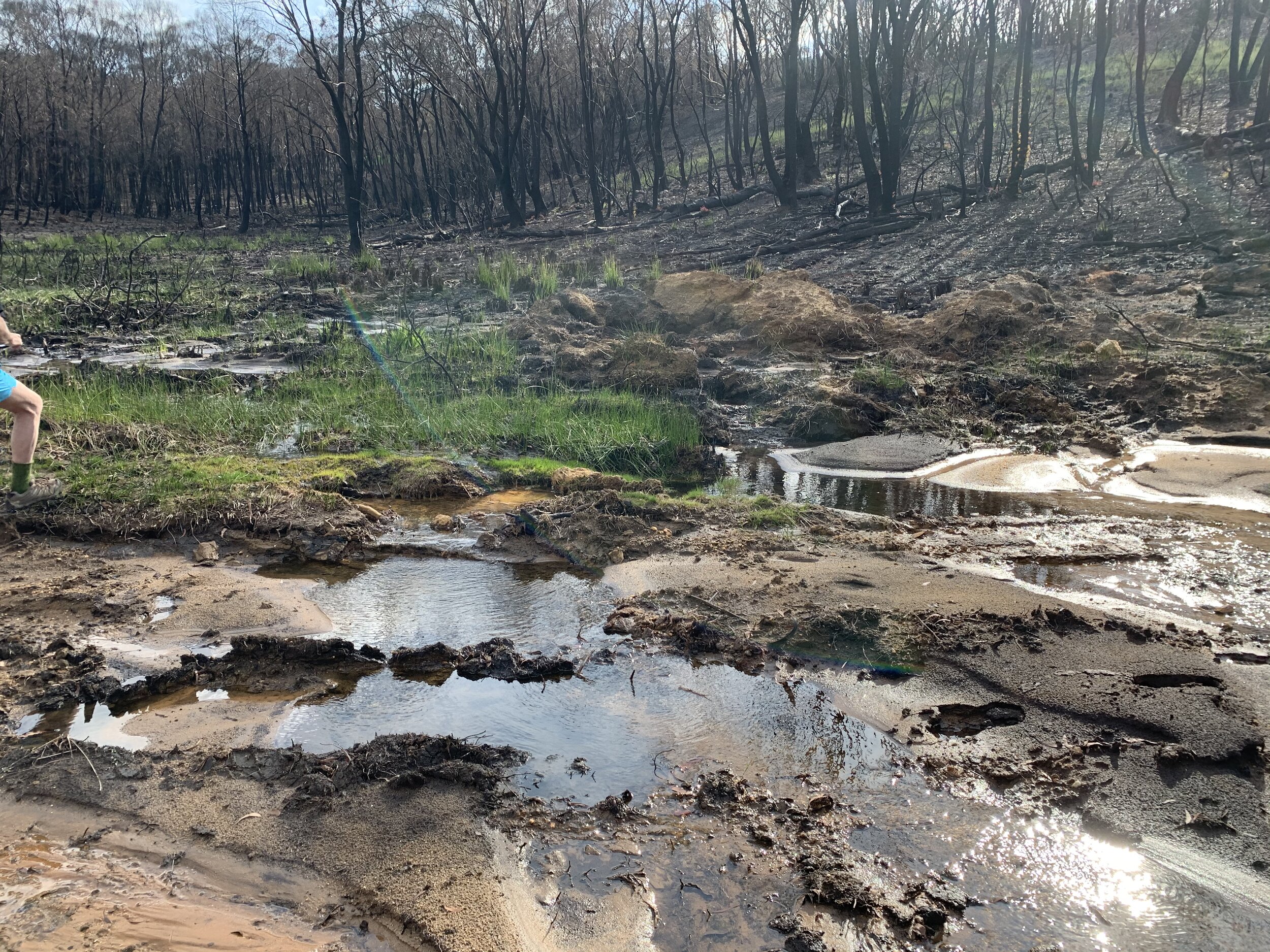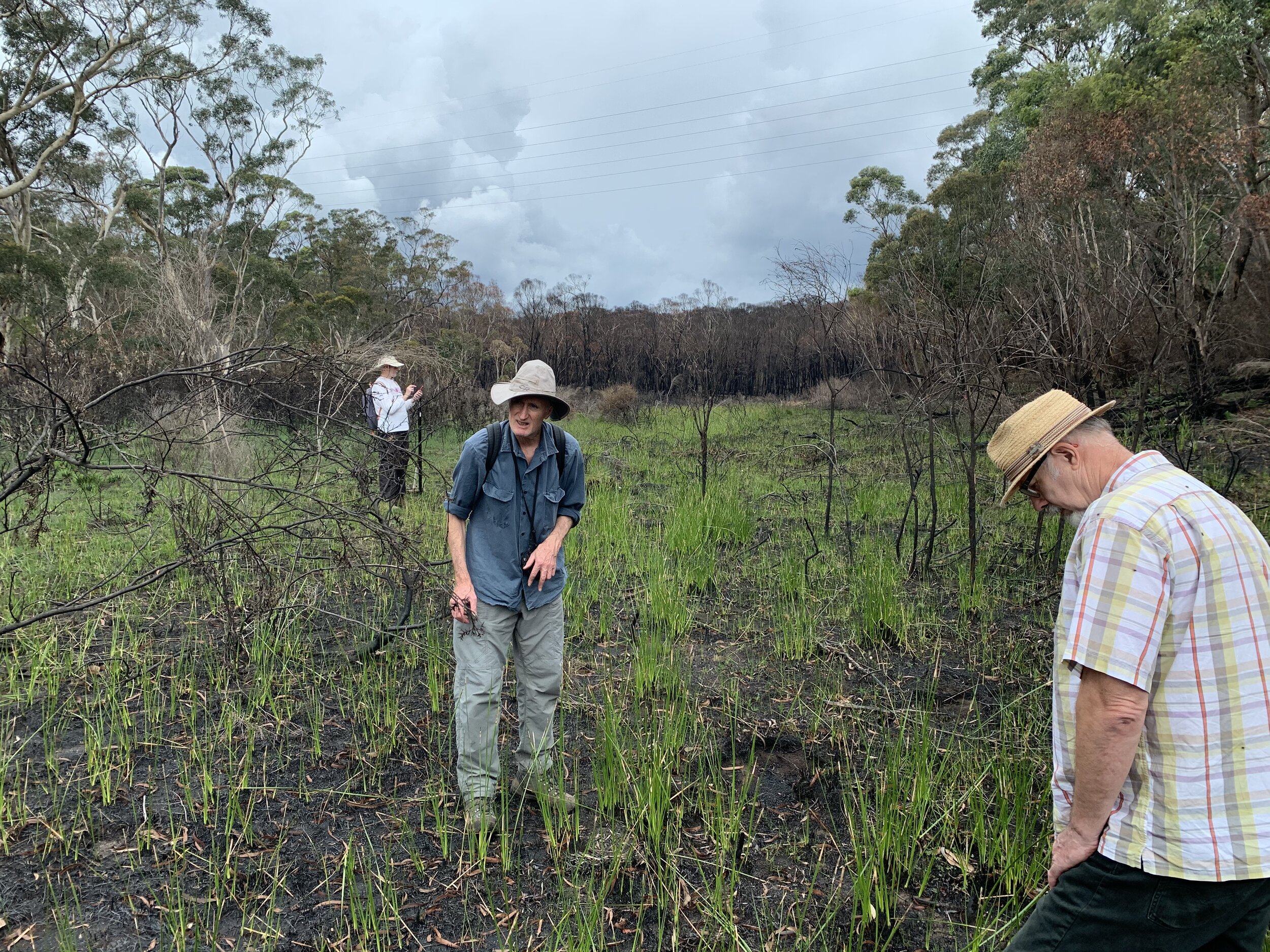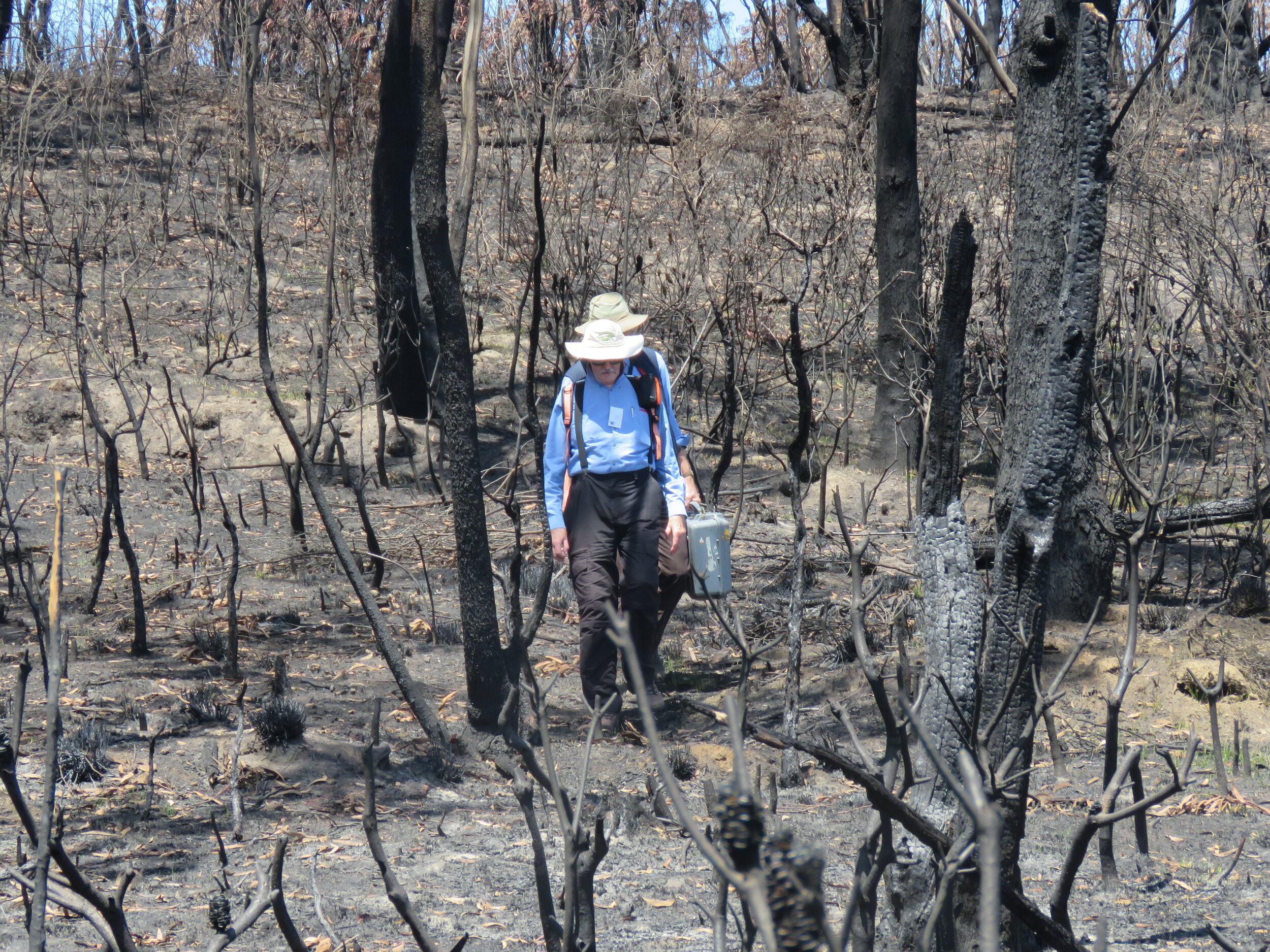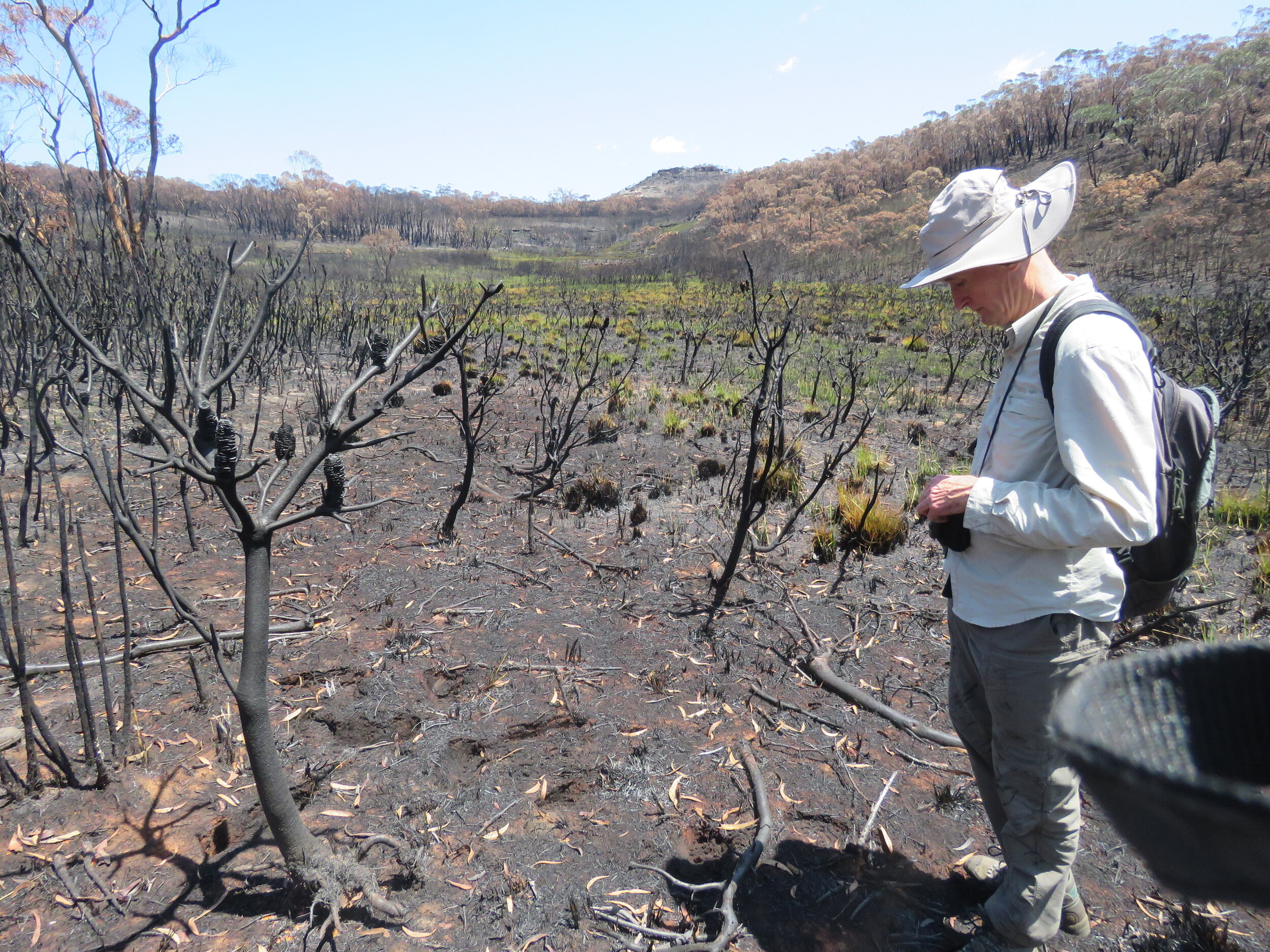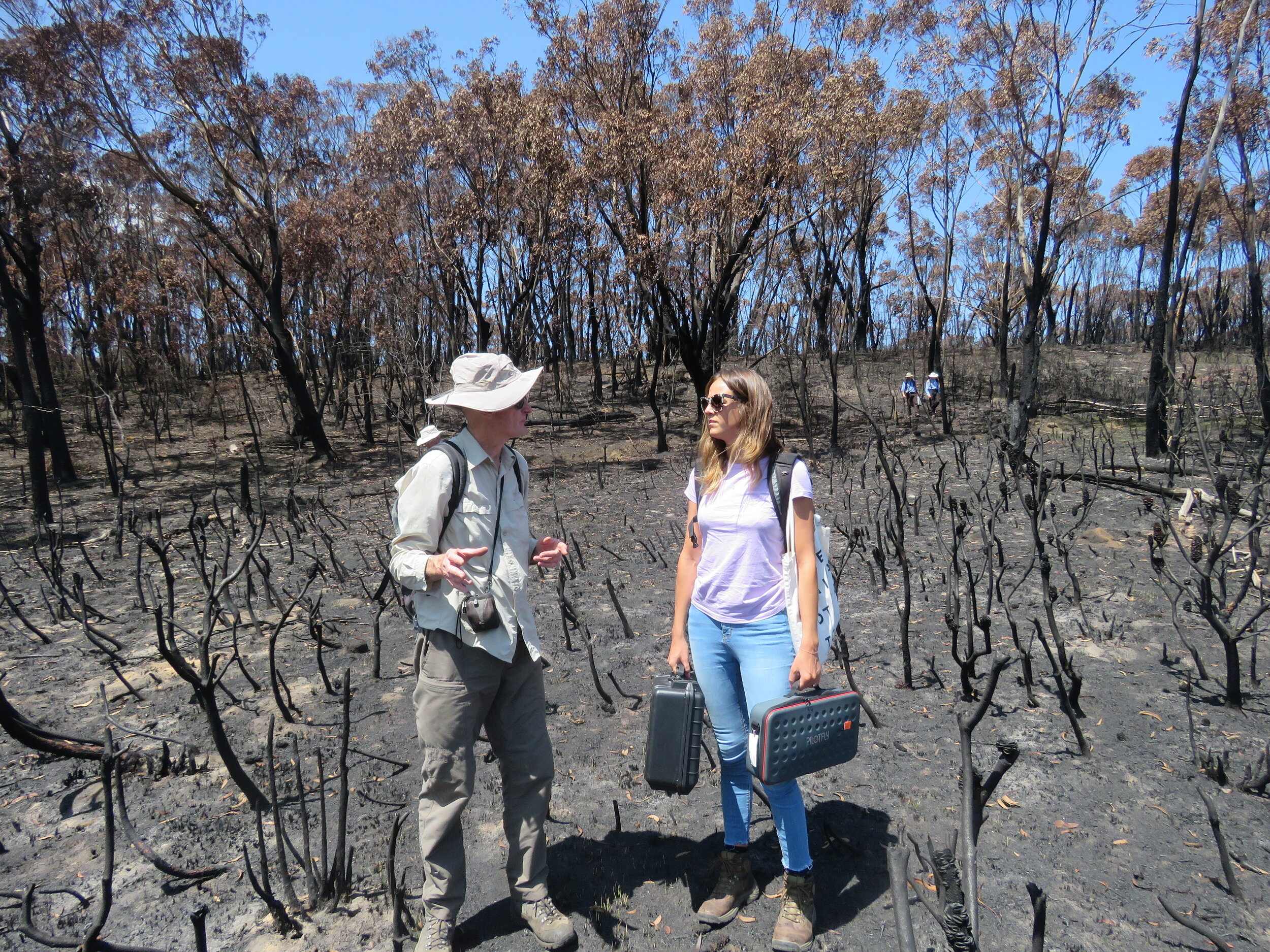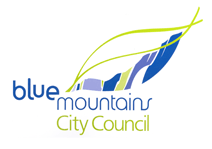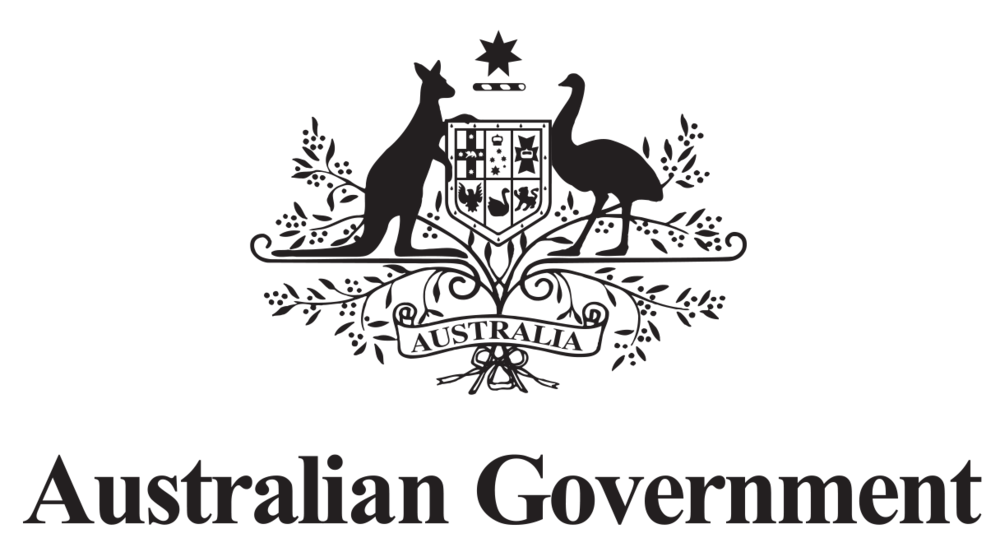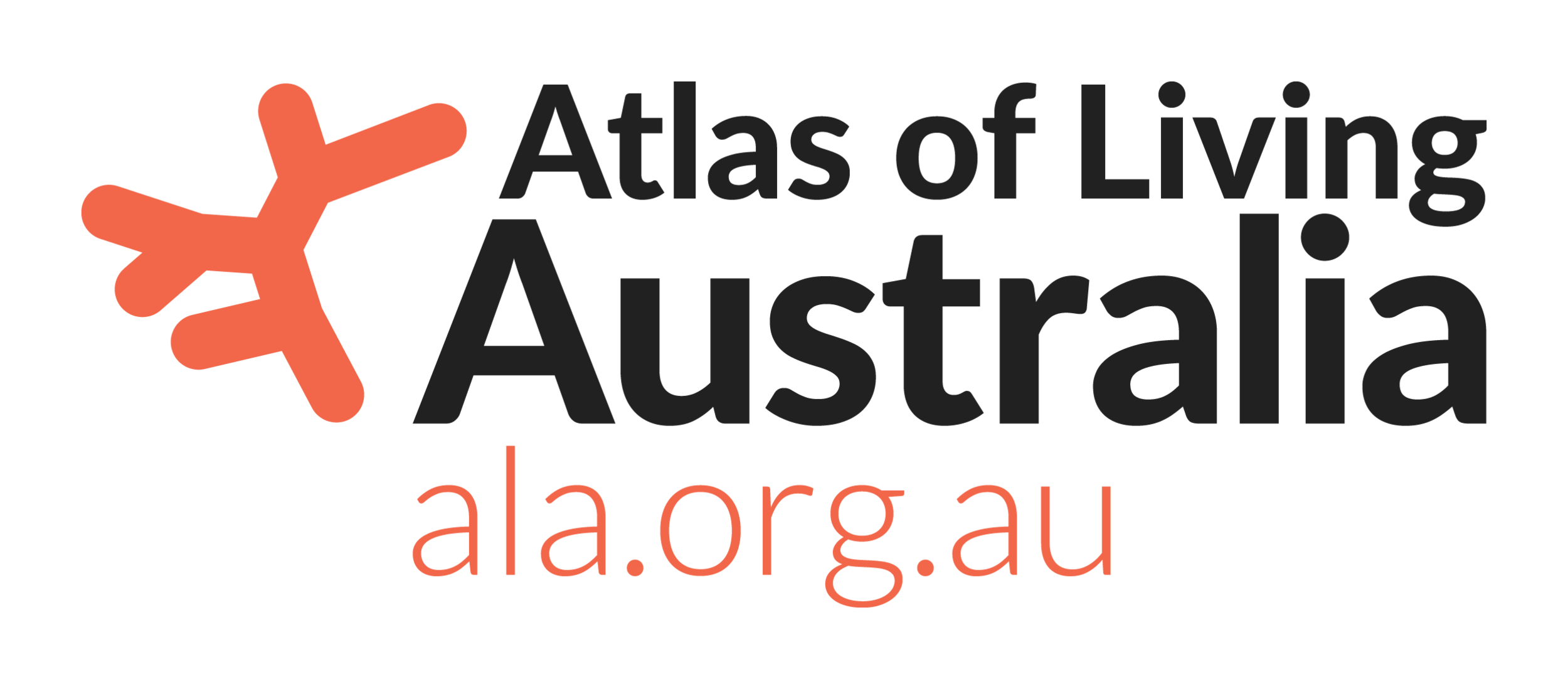BLUE MOUNTAINS UPLAND SWAMPS
The Institute established a research project to investigate the ecological importance and water storage functions of the Blue Mountains Upland Swamps, which are listed as a vulnerable ecological community under the NSW Threatened Species Conservation Act.
Evidence from our Managing for Ecosystem Change in the GBMWHA research project, funded by an Australian Research Council (ARC) Linkage grant, documents how these swamps could be severely impacted by climate change, urban development and mining.
In 2020, a project funded by the Australian Heritage Grants program and the Peter und Luise Hager Foundation, was developed in conjunction with partner agencies the Blue Mountains City Council, NSW National Parks and Wildlife Service, the NSW Department of Environment, and Local Land Services as well as research specialists from the Universities of Western Sydney, University of Technology Sydney, Macquarie University and UNSW Sydney.
This project focused on the development of a monitoring and adaptive management program and a decision support tool for assessing climate change impacts and informing restoration efforts.
This project developed a monitoring system for the Upland Swamps of the GWMWHA, whose water retention and ecological function is being impacted by climate change, urban development and mining. It will provide an early warning system to support remediation and develop an adaptive management strategy for their conservation by land management agencies.
The project provides intervention and restoration options in relation to known and emerging threats such as channelisation, siltation, declining water volume and quality, and the loss of critical plants and animal species.
OCTOBER 2020
The project officially commenced in August 2020 with university research teams, and in-kind support provided by the Science Division of DPIE, NPWS, BMCC & Local Land Services.
The team at Macquarie is led by Dr Kirsten Cowley who is developing the monitoring framework. Four trial swamps will be assessed and monitoring is planned to begin early in the new year.
The team at UTS, led by Peter Dupen, are developing a decision support tool to manage the monitoring data to provide information to land managers on changes in swamp function, which in turn will help inform remediation and restoration activities.
The data collected from swamp sites will be stored at the CSIRO’s BioCollect data base.
Specific research activities include the application of new tools, such as electromagnetic monitoring techniques applied by Prof Scott Mooney (UNSW), which allow an accurate measurement of the swamps water and carbon volume . This parallels work on water quality by Dr Ian Wright (WSU) and on the ecosystems and invertebrate populations in swamps by Prof Grant Hose (Macquarie University).
This research and analysis will help establish a more effective monitoring and restoration program for upland swamps, as they begin to recover from the impact of recent drought, fire and torrential rain.
APRIL 2021
The second phase of our project investigating the ecological importance and water storage functions of the Blue Mountains Upland Swamps is now underway.
An ongoing monitoring program has now been developed and implemented, equipment has been procured and installed, our citizen scientists have been inducted, the first official data collection expedition has been completed, and the data has now been analysed. The development of an online decision support tool for assessing climate change impacts and informing restoration efforts is also in progress.
Four swamps were assessed for suitability with three trial swamps in Medlow Bath, Bullaburra and Lawson now approved for ongoing monitoring. Data collection has begun at two key points at each of the three trial swamps - one data collection point housing a piezometer and the other data collection point being the exit stream.
The first collection of data has been assessed by expert university teams at Macquarie University, Western Sydney University and UNSW. Alarming data collected from the collapsing swamp at Bullaburra was the source for a joint media release by BMWHI and the Blue Mountains City Council.
DECEMBER 2021
On December 9th, 2021 we held a workshop to demonstrate the first development iteration of the online Upland Swamps data-sharing, early warning and decision-support platform.
The purpose of the workshop was to showcase the current capability and potential of the platform as well as engage end-users and stakeholders in prioritising early-warning and decision support needs for the future development of the platform.
View the recording of the workshop below:
NEws & MEDIA
Dec 10, 2021: https://www.bmwhi.org/blog/2021/12/9/workshop-upland-swamps-decision-support-platform-demo
April 26, 2021: https://www.bmwhi.org/news/2021/5/9/media-release-fears-for-iconic-bullaburra-swamp
April 6, 2021: https://www.bmwhi.org/news/2021/5/9/upland-swamps-monitoring-program-now-underway
Feb 28, 2021: https://www.bmwhi.org/news/2021/4/19/peter-und-luise-hager-foundation-continues-support-of-blue-mountains-fire-recovery
June 2020: https://www.bmwhi.org/news/2020/8/18/funding-boost-for-endangered-upland-swamps
ACKNOWLEDGEMENTS
This project was made possible thanks to the generous support of donors, the input of our research partners and our community of volunteers.
With data support from the ALA
